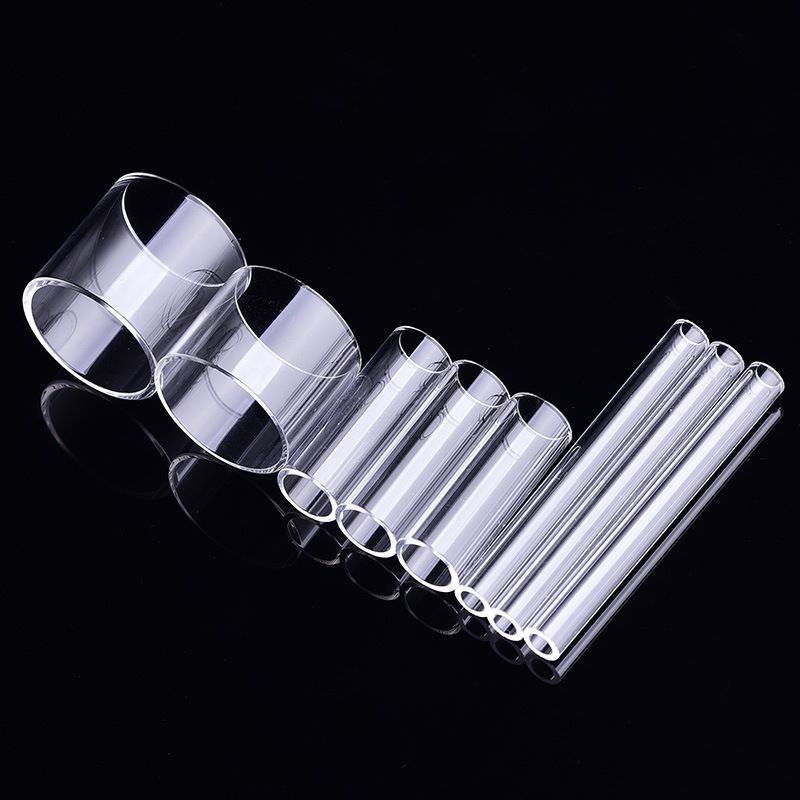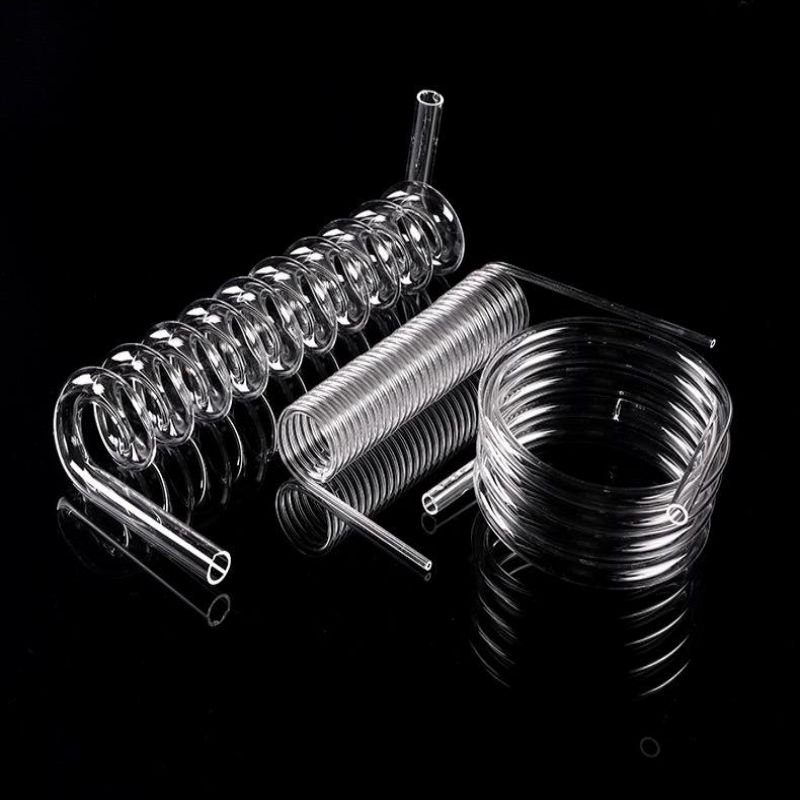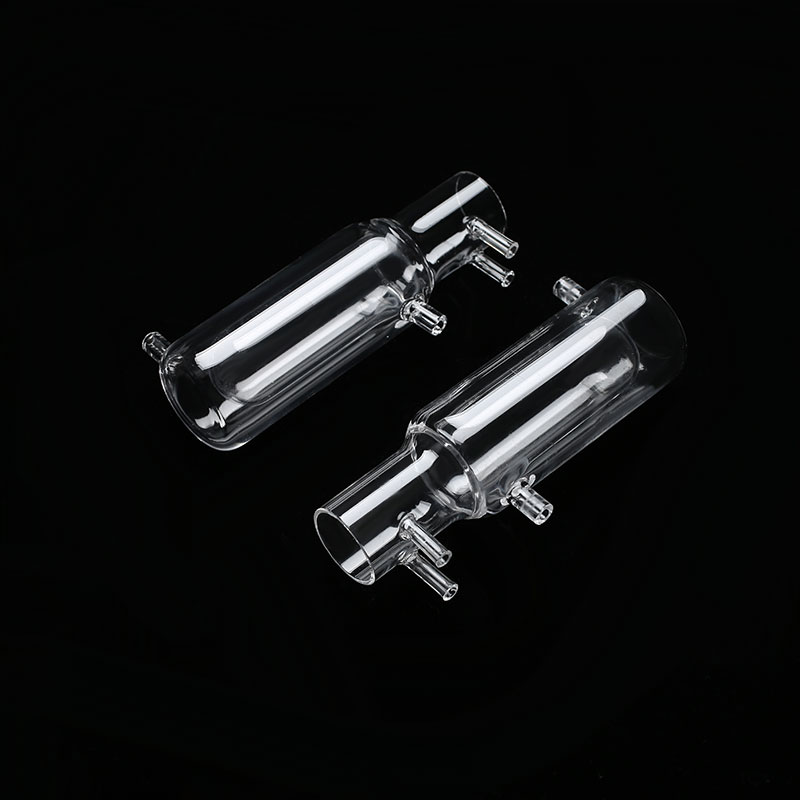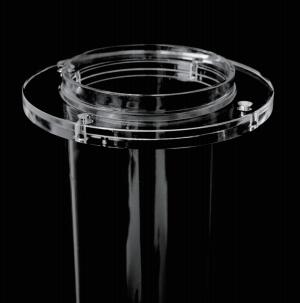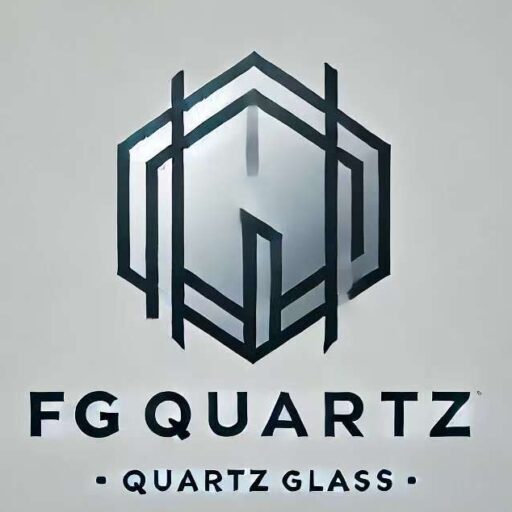Quartz Glass Tubes: High-Performance Solutions for Industrial and Scientific Applications
Quartz glass tubes, also known as fused silica tubes, are essential components in industries that demand high-temperature resistance, excellent purity, and outstanding optical clarity. In this article, we explore the key properties of quartz glass, different types of quartz tubes, and how to choose the right one for your needs.
1. What Is a Quartz Glass Tube?
A quartz glass tube is a cylindrical component made from high-purity silicon dioxide (SiO₂). Compared to ordinary glass, quartz glass can withstand much higher temperatures and offers excellent resistance to chemicals and UV radiation.
Quartz tubes are widely used in:
Semiconductors
Laboratory research
UV sterilization
Industrial heating
Optical systems
2. Key Properties of Quartz Glass Tubes
Quartz glass tubes offer a unique combination of thermal, optical, and chemical advantages:
High Temperature Resistance: Withstands up to 1100°C for continuous use, and 1450°C for short durations.
Optical Clarity: Transmits more than 90% of UV, visible, and infrared light.
Chemical Stability: Resistant to most acids and alkalis (except hydrofluoric acid).
Low Thermal Expansion: Helps prevent cracking under temperature changes.
High Purity: Suitable for semiconductor and scientific-grade applications.
3. Industrial Applications of Quartz Glass and Quartz Tubes
3.1 Semiconductor & Electronic Uses for Quartz Glass Tubes
In semiconductor manufacturing, quartz tubes are essential for processes such as:
Wafer diffusion and annealing
CVD (Chemical Vapor Deposition)
Plasma etching and oxidation chambers
Their high purity prevents contamination, and their heat tolerance supports precise, repeatable cycles.
3.2 Quartz Tubes in Laboratory and Scientific Applications
Quartz glass tubes are ideal for laboratory work involving high temperatures and chemical reactions.
Common uses include:
Quartz reactors and crucibles
UV-visible spectroscopy cells
Thermal and optical test setups
3.3 High-Temperature Quartz Glass Tubes for Industrial Heating
In industrial heating systems, high-temperature quartz tubes are used as:
Protective sleeves for heating elements
Infrared (IR) heater tubes
Gas and fluid transfer conduits in furnaces
Quartz’s resistance to heat shock makes it a safer choice than standard glass or ceramics.
3.4 UV Quartz Tubes for Sterilization and Water Treatment
UV quartz tubes are widely used to protect UV lamps in systems for:
Drinking water purification
Wastewater disinfection
Air and surface sterilization
Their high UV transmittance ensures efficient sterilization and long lamp life.
3.5 Quartz Glass in Optical and Laser Technologies
Quartz glass tubes are used in optics for:
Fiber optic transmission
Laser beam delivery systems
Optical windows and prisms
Quartz’s high clarity and low impurity levels ensure clean, distortion-free light transfer.
4. Types of Quartz Tubes and Their Applications
| Type | Key Features | Recommended Use |
|---|---|---|
| Clear Quartz Tube | High UV/IR transmittance | UV lamps, lab equipment, spectroscopy |
| Opaque Quartz Tube | Excellent insulation, light-blocking | Furnace components, insulation barriers |
| Milky Quartz Tube | Diffused light, low transparency | Lighting tubes, cosmetic applications |
| UV-Blocking Quartz | Filters UV radiation | Lamp protection, UV-sensitive devices |
Each quartz tube type offers specific benefits depending on your application.
5. How to Choose the Right Quartz Glass Tube for Your Needs
Choosing the right quartz glass tube involves several key factors:
5.1 Temperature Resistance
Ensure the tube meets the required thermal conditions. Our tubes can operate at 1100°C continuously and withstand up to 1450°C briefly.
5.2 Purity
For semiconductors and optics, use 99.99% high-purity quartz. Industrial heating may allow for slightly lower grades.
5.3 Dimensions
We offer quartz tubes from 1mm to 1000mm in diameter, with wall thickness from 0.5mm to 10mm.
5.4 Optical Properties
Choose high-transmission quartz for UV work. Use opaque quartz for thermal shielding.
5.5 Chemical Resistance
Quartz resists most chemicals and is suitable for harsh or corrosive environments.
6. Why Choose FG Quartz Glass Tubes?
FG Quartz provides top-tier quartz glass tubes with the following advantages:
✅ Withstand 1100°C long-term, 1450°C short-term
✅ Custom sizes, wall thickness, and lengths
✅ Direct factory pricing with global delivery
✅ Fast support and technical consultation
📩 Contact us now for a free quote or technical advice.
7. FAQs: Quartz Glass Tubes Explained
Q1: What’s the difference between quartz glass and borosilicate glass?
Quartz glass has a higher working temperature (>1200°C vs. 500°C), greater UV transmission, and better purity.
Q2: Can quartz tubes handle sudden temperature changes?
Yes. Quartz has low thermal expansion and good thermal shock resistance. Still, avoid extremely rapid changes.
Q3: How do I clean quartz tubes?
Use deionized water or isopropyl alcohol. Do not use abrasive materials or hydrofluoric acid.
Q4: Can I order custom quartz tubes?
Absolutely. FG Quartz specializes in made-to-order quartz solutions based on your drawings or specs.
Conclusion: Quartz Glass Tubes for Every High-Performance Industry
Quartz tubes offer the perfect balance of heat resistance, chemical stability, and optical clarity. Whether you’re working in semiconductors, labs, heating, or UV systems, our tubes deliver proven durability and performance.
📧 Email: fgquartz@outlook.com
🌐 Website: www.fgquartz.com
